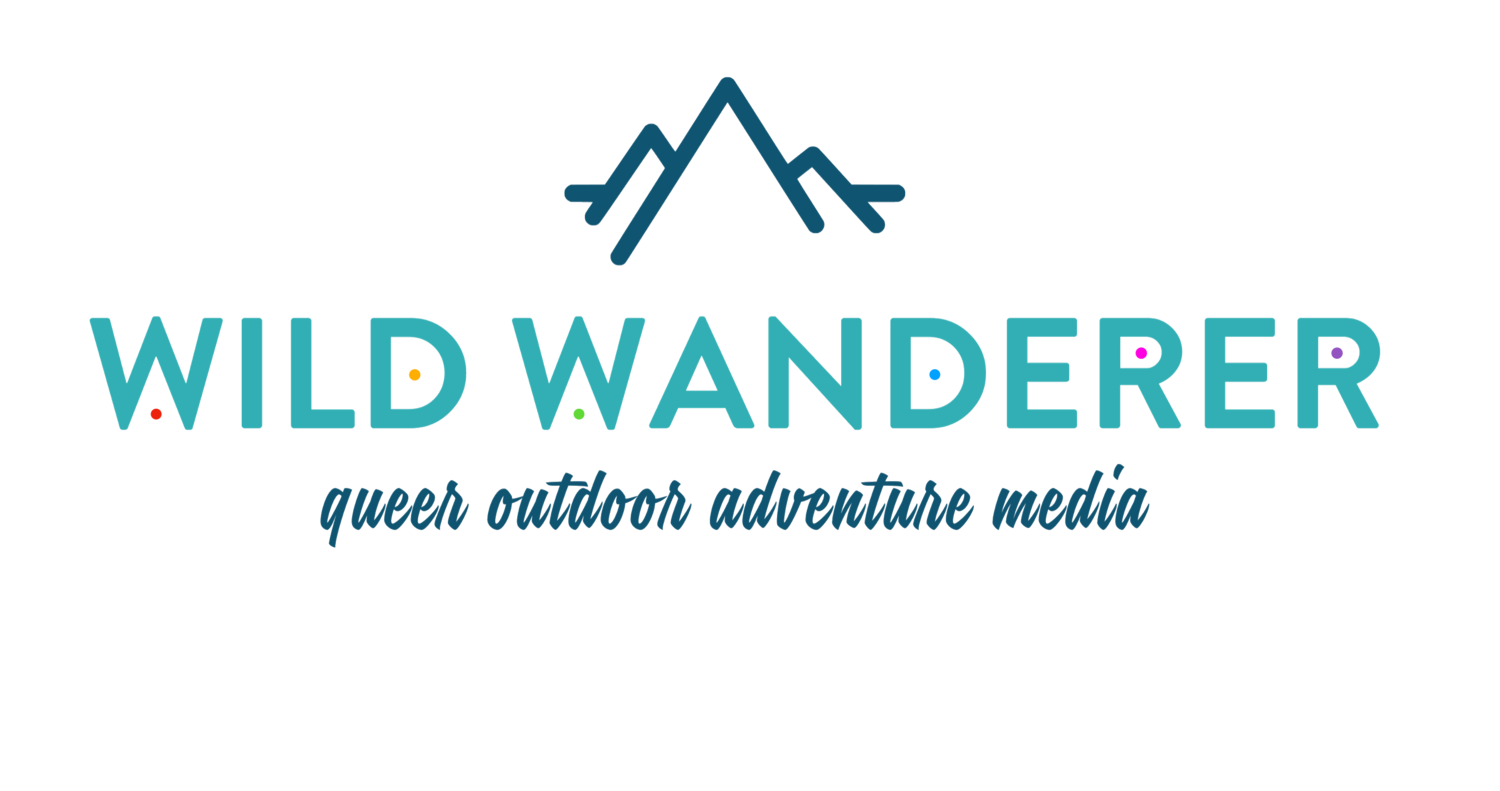Spotlight: Eva
“Queer individuals, especially those with multiple intersecting marginalized identities, have faced and continue to face varying degrees of trauma born from discrimination, hate crimes, bullying, erasure, exclusion, and systemic socio-economic disadvantages. In this way, the outdoors can be an especially powerful place of healing and empowerment for these communities.”
Eva Johnson
What are your pronouns?
They/them and she/her.
How do you identify?
I identify as a white, Jewish queer.
What outdoor activities are you involved in?
I hike and climb because I find it’s when I’m most connected to my body and my surroundings. I love the feeling of getting far into the backcountry, carrying only what I need on my back, and jumping in cold alpine lakes whenever I get the chance. I climb because I love how it’s both a puzzle and a vertical dance. Pushing myself on a climb is what sends me into the present moment like nothing else.
Tell us about a favorite/memorable outdoor adventure you’ve had:
One of my favorite outdoor adventure stories is from a sea kayaking trip I did while studying in Southeast Alaska. One day when we were out paddling, we spotted a pod of humpback whales nearby, surfacing to spray their blow holes every so often. A few minutes later I suddenly realized I was floating right above one of them as it was pushing up to surface! Luckily I paddled out of the way in time, and it came up about 6 feet from me. It was curious, beautiful, and gigantic. Looking back, I sort of wished I let it capsize my boat… you know, to make it a better story.
In your opinion, what are the most important challenges/issues facing queer people outside?
The most pressing issues facing queer folks in the outdoors are accessibility, representation, and safety. Being out in the outdoors is still political whether we like it or not. Queer individuals, especially those with multiple intersecting marginalized identities, have faced and continue to face varying degrees of trauma born from discrimination, hate crimes, bullying, erasure, exclusion, and systemic socio-economic disadvantages. In this way, the outdoors can be an especially powerful place of healing and empowerment for these communities.
One reason LGBTQIA2+ folks meet barriers of participation in outdoor recreation is that we don’t feel welcome or safe in those spaces. This is why representation is key. I identify as queer, but my whiteness is the first thing people see which grants me a pass that black, indigenous, people of color don’t get. Other groups subject to discrimination, including female-identifying folks, people of size, and people with disabilities, are also excluded from the centuries old “outdoorsman” narrative. While outdoorsy minorities are slowly gaining exposure through media, the face of the outdoor industry continues to be a white, cis/het man conquering a mountain.
As an LGBTQ+ person, if you could change one thing about the outdoor industry, what would it be?
The disproportionately small representation of QTBIPOC and queer folks in the outdoor industry is just one manifestation of systemic discrimination in the United States. In other words, issues of safely and accessibility in the outdoors is a symptom of a deeply-rooted system of oppression in this country, where significant change would require an overhaul much larger than the outdoor industry could do alone.
If I could change one thing, though, it would be to create an endowment fund to support programs that take underserved populations outside, provide ride-share services to transport folks to outdoor spaces, offer an array of classes, cover park entrance fees, and give free access to gear closets. Providing financial backing for programs by and for folks with marginalized identities would make a significant impact in the way the outdoor industry functions today. Enjoying the outdoors should not be just a privilege.
Do you have anything else to add?
When I was 16 years old, I was granted a full-tuition scholarship to attend a life-changing kayaking expedition with the National Outdoor Leadership School. That trip is the reason I fell in love with the outdoors. This year I will be thru-hiking the 2,660 mile Pacific Crest Trail to raise money to send two queer-identifying high schoolers on Outward Bound California’s LGBTQ+ course. Follow my journey on Instagram and, if you can, send my fundraiser some monetary love!




